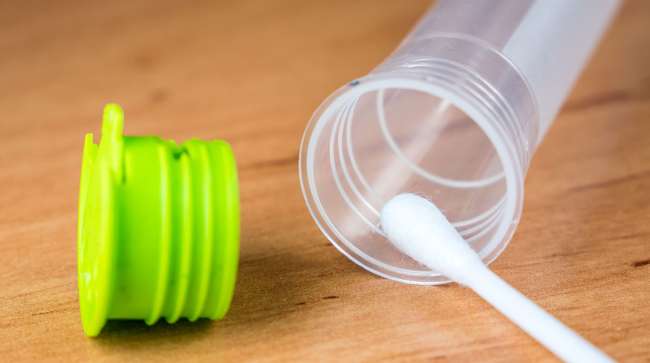Senior Reporter
DOT’s Oral Fluid Testing Stalls Due to Lack of Labs, Testers

[Stay on top of transportation news: Get TTNews in your inbox.]
U.S. Department of Transportation drug testing of truck drivers using oral fluid collections was approved more than a year ago, but a lack of certified lab testing facilities and trained testers has indefinitely stalled use of the alternative method.
“This additional methodology for drug testing will give employers a choice that will help combat employee cheating on urine drug tests and provide a less intrusive means of achieving the safety goals of the program,” DOT said in the final rule posted in the Federal Register in May 2023. “In order for an employer to implement oral fluid testing under the department’s regulation, the U.S. Department of Health and Human Services will need to certify at least two laboratories for oral fluid testing.”
Nearly 14 months later, that has yet to happen. “At this time, there are no laboratories certified to conduct drug and specimen validity tests on oral fluid specimen,” DOT said in a Federal Register post on July 1.
DOT has not identified the reason for the delay other than to imply in documents that the certification process is lengthy.
The guidelines for using oral fluid were first published by HHS in the Federal Register on Oct. 25, 2019, with an effective date of Jan. 1, 2020. To use DOT testing, the agency was formally required to adopt the HHS requirements to test DOT employees.
In addition, to become certified an applicant laboratory must undergo three rounds of performance testing plus an on-site inspection. To maintain the certification, a laboratory must participate in a quarterly performance testing program plus undergo periodic on-site inspections.
Officials have listed many perceived advantages to the new method. These include making the test collection process more visible, reducing collection time, and convenience and ease for detecting recent drug use, such as with post-accident and reasonable suspicion testing.
“Once the Department of Health and Human Services certifies its first oral fluid laboratory, oral fluid testing devices will be available,” DOT said in a Federal Register post last month. “At this time, however, individuals wanting to be oral fluid collectors are not able to be qualified because there are no currently qualified oral fluid collectors to monitor and evaluate the trainee’s mock collections.”
Regulations call for testers to undergo training for one year.
In a news release DOT said a safety-sensitive employee such as a truck driver could be subject to either an oral fluid collection or a urine collection for any DOT-regulated test — pre-employment, random, reasonable suspicion/cause, post-accident, return-to-duty or follow-up.
DOT has noted the option of oral testing expands fleets’ flexibility.
“If there is a reason a second collection is needed during the testing event (e.g., initial temperature out-of-range urine specimen, or insufficient quantity for either an oral fluid or a urine specimen), the employer may choose to change to the other type of collection to finish the testing event,” DOT has said. “The choice of whether to conduct an oral fluid or a urine test is up to the employer.”
Want more news? Listen to today's daily briefing above or go here for more info
In a follow-up proposed rule published last month “to amend unforeseen circumstances rendering it impossible to comply with requirements in the final rule,” DOT provided temporary qualification requirements for mock oral fluid monitors. These updated guidelines provide for consistent privacy requirements by identifying which individuals may be present during an oral fluid collection, and clarify how collectors are to specify that a sufficient volume of oral fluid was collected.
In the posting last month, DOT said it was correcting the inadvertent omission of this provision from its earlier oral fluid testing requirements.
“Thus, we propose to add a new paragraph to the regulation instructing the oral fluid collector not to allow anyone other than the collector, the employee being tested, or a DOT agency representative to witness the testing process,” DOT said.




